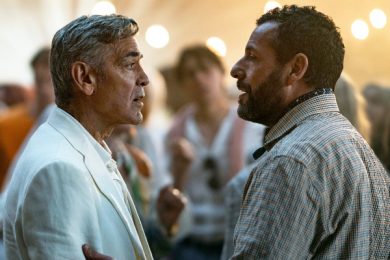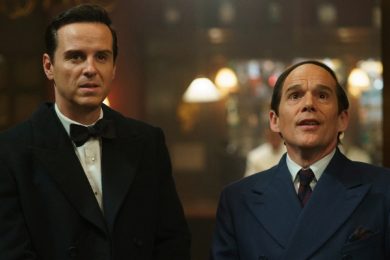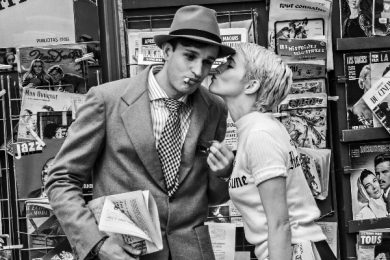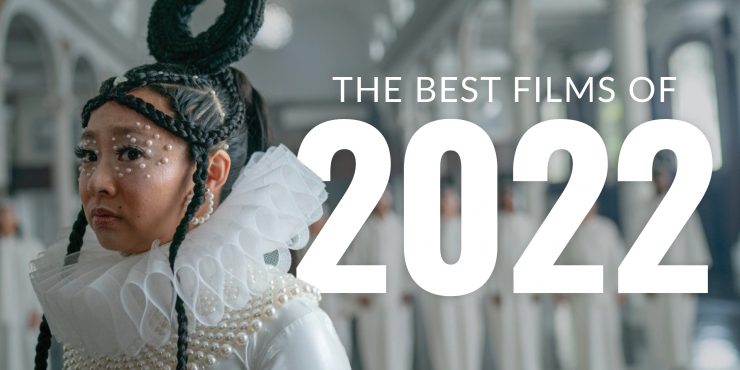Perhaps I went a little overboard. It’s usually a lack of discipline that causes me to spill over the usual “Top 10” at the end of the year and expand it. I won’t deny it, but I will make my argument in this way: 2022 was the first year since COVID-19 arrived in March 2020 that the movies were truly back. Studios unleashing their backlog of blockbusters while indies that had been passing along the festival circuit finally got their moment in the sun. I’ll admit, I almost went further; I almost did a Top 25 (*gasp*). But twenty felt right, not only because of the trustworthiness of a round number, but also in representing the movies this year that really hit me, and there really was at least twenty of them. So, without further ado, my Top 20 of 2022:
20. Bardo, False Chronicle of a Handful of Truths
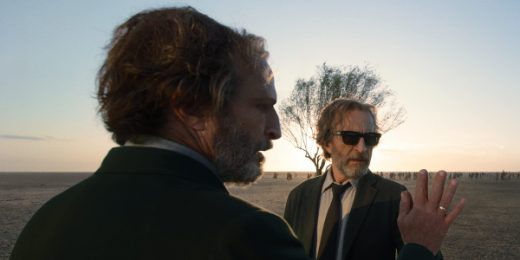
A man conjures his life, his death, and everything in between. Alejandro Gonzalez Iñárritu has won two Best Director Oscars but he’s still fighting Imposter Syndrome just like the rest of us. The great Daniel Gimenez Cacho plays a journalist on the cusp of winning a lifetime achievement award, which inspires him to revisit his home of Mexico City. Based on Iñárritu’s own life experiences, Bardo travels into the deep subconscious and explores what it means to be successful, to be Mexican, to be existing in this world. The film is equal parts megalomaniacal and insecure, audacious and vulnerable. It’s also the best film Iñárritu has ever made. (On Netflix)
19. Decision to Leave
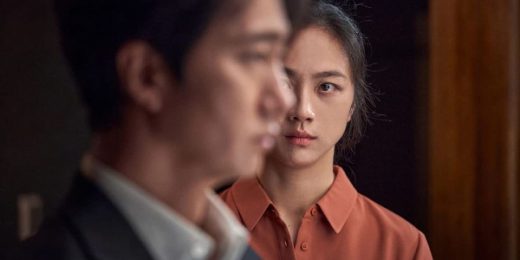
A collaboration between South Korean director Park Chan-wook and Chinese actress Tang Wei is the kind of event that movie lovers dream of. His provocative films seem perfectly suited to her alluring screen presence. It’s then hilarious that what we got was Decision to Leave, a chaste but passionate romantic noir about a detective (Park Hae-il) who falls head over heels for a woman (Tang Wei) who’s also the main suspect in a murder he’s investigating. Allusions to Vertigo intermingle with some of the most breathtaking filmmaking and visual effects you’ll ever see. The film leaves you with more questions than answers, which is part of the wonder of what you’re watching. (On MUBI)
18. Women Talking
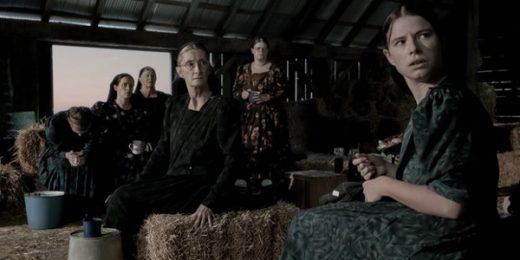
The first Sarah Polley movie in nine years, Women Talking bristles with pain and indignation. A group of women use what little leverage they have to come together and discuss the attacks they have sustained. In doing so, they bring on an enlightenment that has been forbidden to them their whole lives. The subject matter is daunting and the source material (a sparse novel from Miriam Toews) is based on real tragedies, but Polley crafts it into a powerful statement on the profundity of solidarity, and how that solidarity doesn’t always mean agreement. The ensemble cast is end-to-end great. (In Theaters)
17. The Menu
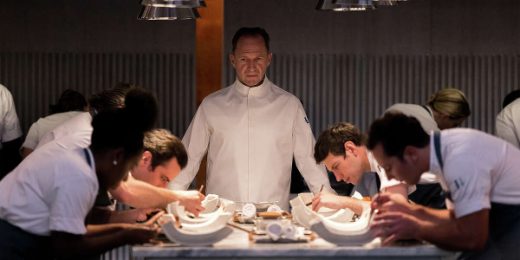
Along with Glass Onion and Triangle of Sadness, The Menu completed 2022’s trilogy of eat-the-rich comedies. The Menu takes that metaphor to its most literal place. Ralph Fiennes leads an ensemble, spoofing foodie pretension and the self-seriousness of fine dining. Director Mark Mylod doesn’t need high-minded intellectuality to make this class satire spike with rage, instead trusting his cast and the humor of his premise to bring the message home. Anya Taylor-Joy, Nicholas Holt, and (especially) Hong Chau comprise one of the funniest, most effective comedy ensembles of the year. (On HBOMax on January 3rd)
16. Saint Omer
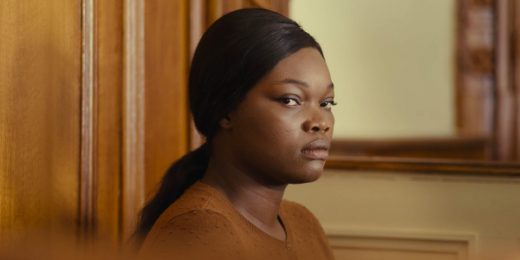
While at first there doesn’t seem to be more to Alice Diop’s film than a rote recreation of the baroque and tedious nature of the French legal system, Saint Omer lures you into something far more engrossing as the connections between the two main characters begin to form. As the film unfolds, what at first felt oddly confined opens up into a tale of two women arguing for their place in a world that holds no value in them. Based on real life events, and also heavy with allusions to Euripides’ Medea, Saint Omer is one of the year’s greatest magic tricks, surprising you with one of the most emotionally embattled endings in quite a while. (In Theaters January 13th)
15. The Eternal Daughter
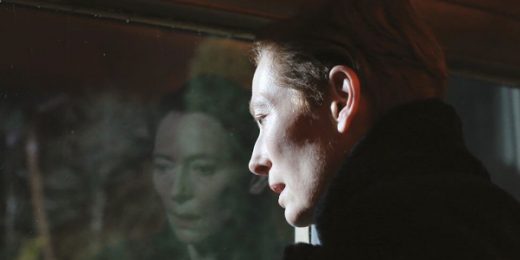
Two Tilda Swinton performances in a single movie is nothing new but The Eternal Daughter gives us the enormously pleasant opportunity to see her act against herself. Joanna Hogg – queen of the meta-text, autofictional cine-memoir – gets Tilda to star in this minuscule ghost story about a mother and daughter (both Swinton) trying to enjoy a holiday in the world’s creepiest hotel. There is fog and bumps in the night, but mostly there is Swinton, framed beautifully by Hogg and giving one of the most impressive pieces of screen acting I’ve ever seen. (In Theaters)
14. Turning Red
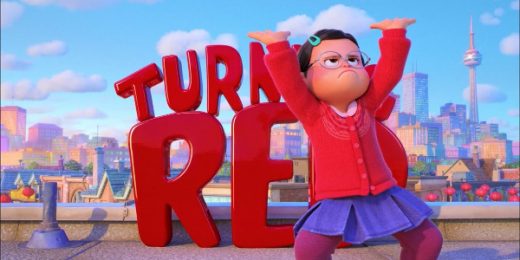
This isn’t simply a 100-minute menstruation metaphor. It’s also a hilarious story of intergenerational womanhood. Director Domee Shi drew upon her own life for this story and that familiarity shows in the film’s personal touches. Like all Pixar, your heartstrings will be pulled, but this is the first time in a while that I feel like they actually earned it. (On Disney+)
13. Aftersun

Charlotte Wells’ debut feature may leave you in tears, but it will also leave you wondering how she even pulled it off. This impressionist film about a father and daughter on holiday creeps up on you, will work you over before you realize what’s even happening. At a spry 26 years old, Paul Mescal plays a father to Frankie Corio, a couple of pale Scots spending some time together in a gaudy Turkish beach resort. The film can trick you into thinking its meandering when it’s really setting the stage for its emotional punches. When it comes, you’ll be down for the count. (In Theaters)
12. Mrs. Harris Goes to Paris
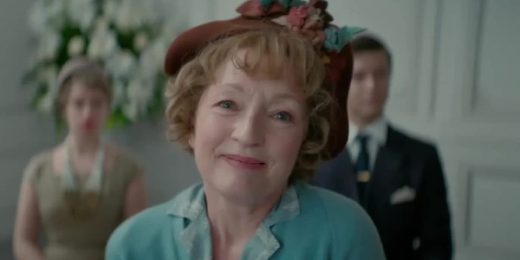
Come for the nicecore kindness porn. Stay for the nuanced portrayal of grief, the cogent discussions of labor solidarity, and the absolutely otherworldly performance from Lesley Manville. The titular Mrs. Harris is something like a human Paddington bear, but Manville’s portrayal is imbued with deep feeling, and takes this treacly tale and makes it something profound. (On Peacock)
11. The Banshees of Inisherin
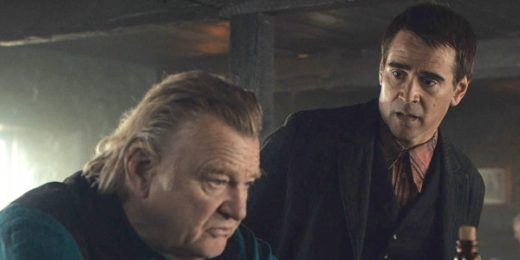
A metaphor for the Irish Civil War, sure. But in its construction, playwright-turned-filmmaker Martin McDonagh actually makes a pretty remarkable face value movie about heartbreak. What is it like to lose a friend? When someone you love doesn’t want to love you in the same way? Colin Farrell and Brendan Gleeson have an In Bruges reunion and re-confirm their pitch-perfect comedic chemistry. But Inisherin is a very melancholy movie by nature, between one man whose despair has overtaken him and another man who is incapable of comprehending the consequences of that. An incredible ensemble, that also includes Kerry Condon and Barry Keoghan, lights up this piercing dramedy. (On HBOMax)
10. Happening
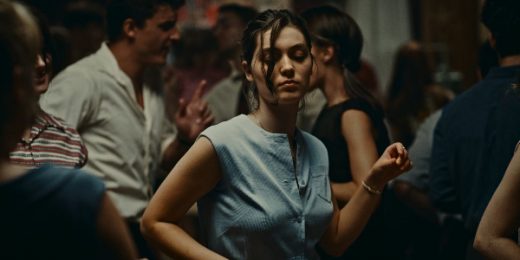
A movie that became devastatingly timely upon its US release with the overturning of Roe v. Wade. Happening is an image of the past as well as a warning for the future. The second feature from director Audrey Diwan, it won the 2021 Golden Lion at last year’s Venice Film Festival, and while little seen when it finally premiered stateside, the impact it leaves is hard to argue against. Diwan crafts this abortion drama as a ticking clock thriller, heightening the stakes at every turn and relaying that pressure onto the audience. It’s a long way to go with little release, an intentional claustrophobia that forces you to accept the urgency of the moment. (Available on VOD)
9. God’s Creatures
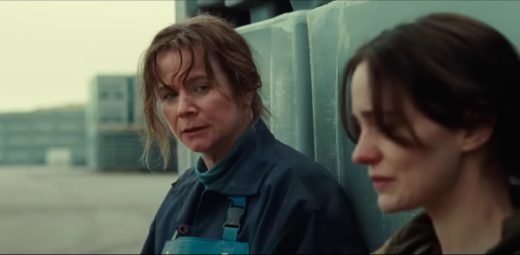
No film in 2022 had a more uninviting setting. The cruel sea that laps the shores of this dreary Irish village provides the fish that keeps their economy going, but it is also a brutal moral avenger. Emily Watson plays a woman trapped in unhappiness who gets a spark of joy with the return of her son (a mercurial, captivating Paul Mescal). When she’s forced to protect him against accusations, a moral chasm quickly opens beneath her and the town, threatening to take everybody under. A thrilling family drama with a brilliant performance from Watson, God’s Creatures gets under your skin, with its Dostoevsky-ian parable that stays with you long after the film has finished. (Available on VOD)
8. Everything Everywhere All At Once

I’ve seen this movie three times now and each subsequent time I expected to have developed defenses against its charms, which are ample and armed with the kind of quirk that could plague a less successful movie. The Daniels seem like two people I’d never want to be stuck in a room with, but Everything Everywhere All At Once is an undeniably titanic achievement of imagination. Michelle Yeoh, the legend of Hong Kong cinema, gets her proper tribute, and gives a performance as game as any movie star could deliver. Stephanie Hsu and Ke Huy Quan are incredible in supporting roles, filling this story with an aching heart to counteract the juvenile humor. A genuine laugher and a devastating crier. Few films can claim to be both with as much certainty as this. (On Showtime)
7. The Fabelmans
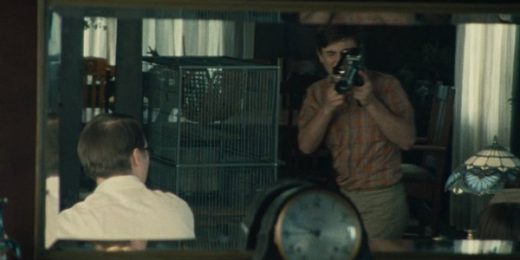
Everyone loves an origin story. In The Fabelmans, Spielberg not only reconstructs his childhood memories but also builds the case for his own filmmaking ethic. Sammy Fabelman’s (Gabrielle LaBelle) sole obsession is movies, and it just so happens to be something he has a preternatural talent for. His home is led by an upstanding but uptight father (a great Paul Dano) and a flighty, piano-playing mother (an even better Michelle Williams). As the parents pull at Sammy in opposite directions, the son falls deeper into his fascination with cinema, using the medium to gloss over, and in some cases re-contextualize, the tensions of real life. Spielberg isn’t simply making a movie of his life, but re-formatting his own mythology. Illuminating his dark secrets but purely on his own terms. And let’s not forget the David Lynch cameo. (In Theaters)
6. All the Beauty and the Bloodshed

A portrait of an artist on fire. Oscar-winning director Laura Poitras has covered subjects with more political intrigue (Edward Snowden, Julian Assange), but in turning her camera toward photographer Nan Goldin, she makes an argument for the ways the political engage with those outside of its spider web. Intercutting Goldin’s contemporary fight against the Sackler family with a lifetime of protest against monolithic figures, All the Beauty and the Bloodshed documents an artist’s whose imperfect life – filled with vice, mental illness, domestic violence – never stopped her from weaponizing her influence against those who wish to silence marginalized communities. It’s an ideal and an inspiration. It’s also an astonishingly made movie. (In Theaters)
5. No Bears
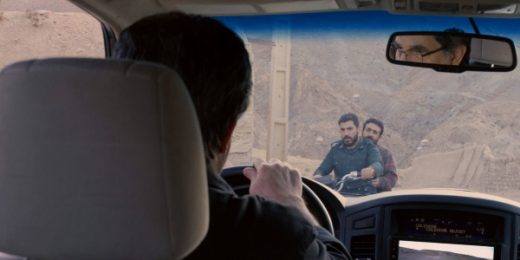
Welcome to the world of Jafar Panahi where the very act of making art can cost you your freedom. There’s always been an indiscernible mix of fact and fiction with Panahi, and his political situation (legally banned from making films in Iran and also forbidden to leave the country) is always providing extra context to the stories he’s interested in telling. No Bears is meta in ways both expected and not, luring you in with parallel narratives both in front of the camera and behind it. The alacrity of its story, how it weaves between one and the other is just one of the film’s great achievements. That Panahi has been imprisoned by the Iranian regime since filming this only heightens the human-level stakes that the script lives in. The best ending of 2022. (In Theaters)
4. Descendant
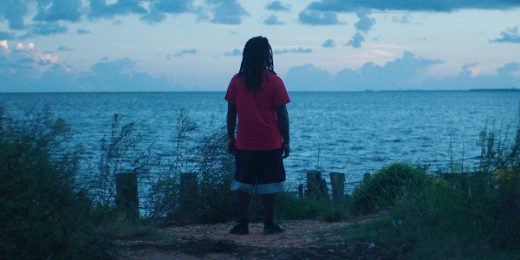
The residents of Africatown – an enclave of Mobile, AL – are haunted by ghosts. Specifically by the slave ship Clotilda, the last slave ship to transport African slaves to the United States; doing so illegally in 1860, long after the practice was made illegal. Margaret Brown’s Descendant deals with the bedlam of trauma and uncertainty that plagues Africatown centuries later. Aided by research from novelist Zora Neale Hurston in the mid-Twentieth Century, a collection of the town’s residents band together to find lost evidence of the Clotilda’s existence and legitimize the stories of their ancestors. Wondrously made and tenderly told, Descendant is the most moving film that I saw all year. (On Netflix)
3. Tár

I don’t think there’s anything in Todd Field’s first two films that could prepare you for Tár. Starring Cate Blanchett as a world-renowned classical composer and conductor, Lydia Tár, Field’s construction of a mad genius hoisted on her own petard has been so engaging that it’s already influenced conversations as far ranging as “is Lydia Tár a real person?” and “is the entire last hour a dream?” That both theories have equal amounts of validity and preposterousness speaks to how Tár evokes strong feeling from anyone who sees it. Blanchett’s performance – perhaps her best ever – adds to the film’s deep subjectivity. There is an element of Field’s film that is very much like a dream or, more likely, a nightmare. (In Theaters)
2. After Yang
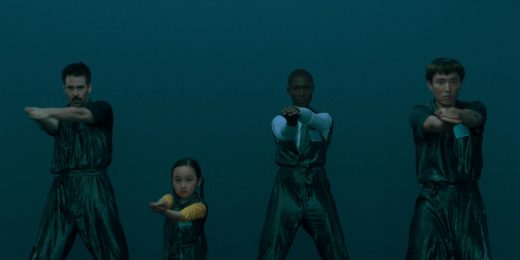
A wondrous, melancholy view of the future where transportation and communication has evolved but our own emotional capacity is still confined by our human limitations. Colin Farrell plays a father trying to repair his family’s android (the titular Yang, played by Justin H. Min), that has gone from an appliance to a babysitter to a full-blown family member. Writer-director Kogonada has already shown his talent for emotional tenderness and technical precision. His second feature, After Yang captures the spiritual limbo that lies between basic connection and the digital age. In his quest to fix Yang, Farrell’s father goes through his own existential journey. What does it mean to be human? In After Yang, we learn that it’s not just the humans who ask themselves that question. (On Showtime)
1. Nope
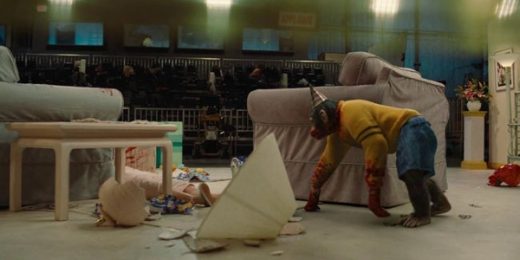
A daunting sci-fi/horror film. A devastating Hollywood satire. A deconstructed Western. A film about brothers and sisters. Nope runs the gamut of genre and tone, but writer-director Jordan Peele keeps his story crystal clear. His incredible ensemble – led by the taciturn intensity of Daniel Kaluuya and the mega-watt comedic brilliance of Keke Palmer – guides us into a stirring, unpredictable journey. What is this movie about? Peele’s scripts have the expectation of meaning for audiences, but answering that question not only spoils the fun but ignores that the movie is much more interested in explaining itself through its whirling technique (Hoyte von Hoytema’s self-reflexive cinematography is one of this film’s many strokes of genius, Nicholas Monsour’s precise editing is a key in accomplishing the film’s tonal landscape, Michael Abels’ score achieves Hollywood majesty while staying true to Peele’s transgressive attitude), than it is in concrete conclusions. A masterpiece of world building that goes on to break its own rules time and again, Peele further confirms his status as a masterful screenwriter. Now he can add bonafide blockbuster director to his resume. A special shoutout to Steven Yeun, whose small but haunting role is one of the most chilling performances I’ve ever seen. (On Peacock)
A few more: Special citation to these 2021 films: Celine Sciamma’s Petite Maman and Ryusuke Hamaguchi’s Wheel of Fortune and Fantasy, whose coy release strategies prevented me from seeing them until earlier this year. Back to 2022. RRR, Top Gun: Maverick and Avatar: The Way of Water proved that Hollywood (and Bollywood) is still capable of making broad, commercial spectacles that can win box office receipts without selling the audience short on entertainment; David Cronenberg’s Crimes of the Future is a macabre, surprisingly moving tale of attempting to be provocative in a world that’s perpetually grotesque; Rian Johnson upped the scale with his Knives Out sequel Glass Onion, a hilarious romp with a tremendous ensemble; Triangle of Sadness is a blunt instrument, but it’s also an outrageous and brutal take on the dynamics of power and class; Terrence Davies’ Benediction and Sebastian Meise’s Great Freedom are stories of subdued homosexuality in more hostile times, both charged by incredible lead performances (Jack Lowden and Franz Rogowski, respectively); Return To Seoul is a biting, inventive tale of personal displacement and political identity; Emily the Criminal is a noirish tale with neorealist sensibilities, and a startlingly good Aubrey Plaza in the lead; Danielle Deadwyler’s performance in Till infuses the film with dignity in the face of grave injustice; Florence Pugh teams up with Sebastian Lelio for The Wonder, which reestablishes her reputation among our best young actors (and does work toward erasing the scandal of Don’t Worry Darling).







